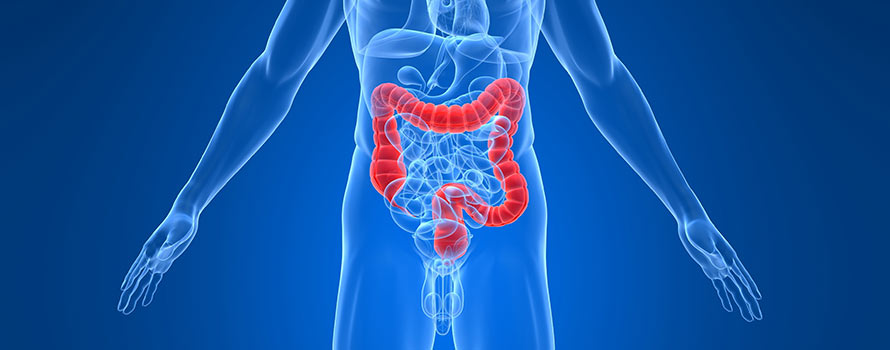
Irritable bowel syndrome (IBS) is a disorder of the large bowel (colon) in which the bowel overreacts to a mild stimulus – such as eating or the presence of gas – by going into spasm. IBS is characterised by abdominal pain, bloating and irregular bowel habits – including alternating diarrhoea and constipation.
IBS is extremely common, and is thought to affect as many as one in five people. It is most common in people in their 20s and 30s, and seems to affect more women than men. In some people IBS is a mild annoyance, while in others it can have a very debilitating effect.
What are the symptoms of IBS?
There are many different IBS symptoms:
- Abdominal pain which can be quite severe – pain may be relieved following a bowel movement.
- Unusual bowel movements – intermittent diarrhoea, constipation, or an alternating combination of both.
- Cramps along with urge to move bowels but inability to do so.
- Bloating sensation.
- Excessive belching and flatulence.
- Stool may have mucous and be small in size.
- Occasionally heartburn, nausea and vomiting also occur.
IBS appears to be due to an abnormal, exaggerated response of the muscles of the intestinal walls; however, it is not known exactly why some people develop the disorder. It can sometimes develop after a gastrointestinal infection or food poisoning, and there are also a number of factors that trigger the condition – including dietary, psychological, hormonal and genetic factors. Stress and depression are known to contribute to flare-ups.
Possible dietary triggers include wheat products, dairy products, onions, drinks with caffeine and chocolate. Keeping a food diary can be helpful in identifying and dealing with the dietary causes of IBS.
There are no specific tests for IBS, and your doctor will generally make a diagnosis on the basis of your symptoms and after ruling out various other disorders – such as colon cancer and Crohn’s disease. Diagnostic tests that may be carried out to rule out these other disorders include blood tests, stool analysis, x-ray and endoscopy of the bowel.

